Are you considering resigning from your job but want to ensure a smooth transition? Crafting a thoughtful resignation letter with an extended notice period can help maintain positive relationships and leave a lasting impression. It's essential to express gratitude while clearly stating your intention to resign, along with your proposed last working day. For a detailed guide on writing an effective resignation letter, keep reading!
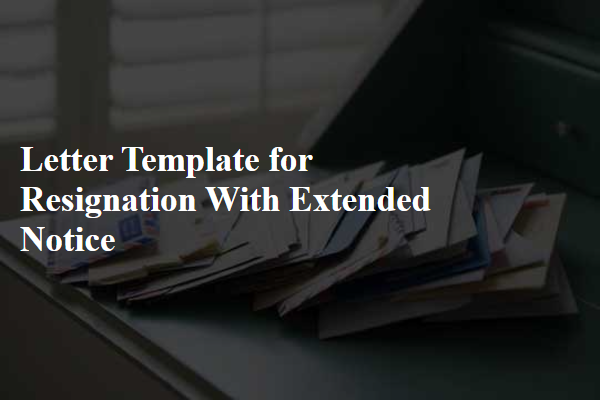
Clear statement of resignation
Submitting a resignation with an extended notice period allows professionals to maintain goodwill and support a smooth transition. Formal letters, often directed to a supervisor or HR representative, should include a clear statement of resignation, such as "I hereby resign from my position at XYZ Corporation." Extended notice, typically lasting four weeks (or longer depending on company policy), signals commitment to assist during the transition. It is advisable to offer support in training a successor or completing ongoing projects, ensuring operations continue seamlessly. Including specific last working day, aligning with the company's calendar, can help facilitate necessary arrangements for workload management.
Extended notice period offer
Resignation from a position can be a significant decision requiring careful consideration. Providing an extended notice period allows for a smoother transition in the workplace. A resignation letter should clearly outline the intention to resign, specifying the last working day after the extended notice period. For instance, a typical notice period may be two weeks, while an extended notice could stretch to one month or more, depending on company policy or personal circumstances. Mentioning the willingness to assist with training a replacement can indicate professionalism and commitment to the organization. Adding gratitude for opportunities offered enhances the positive tone of the communication. This formal endeavor reflects respect for the employer and colleagues involved.
Gratitude and appreciation
In a professional setting, an employee may choose to resign from their position while expressing gratitude and appreciation for their experiences. A resignation letter typically highlights key aspects such as the specific last working day, which might be extended, demonstrating respect for company protocols. The mention of personal growth, learned skills, and valuable relationships forged during employment can enhance the message's positivity and professionalism. A thoughtful farewell also leaves the door open for potential future opportunities and maintains professional networks, which are crucial in career development.
Transition and handover willingness
During my time at XYZ Corporation, I have appreciated the opportunities for professional growth and collaboration with my colleagues. Due to personal reasons, I will be resigning from my position as Senior Marketing Manager, effective two months from now, on December 31, 2023. This extended notice period allows for a comprehensive transition and handover of my responsibilities. I am fully committed to ensuring a smooth process, including detailed documentation of current projects and training my successor. My final weeks will be spent making certain that all ongoing initiatives are in good order, positioning the team for continued success beyond my departure. Thank you for your understanding and support during this transition phase.
Contact information for future communication
A formal resignation letter should include essential details like personal contact information, the company name, and a clear intention to resign with an extended notice period. In the context of employment, giving an extended notice of typically around four weeks allows for a smooth transition. The letter should also express appreciation for opportunities provided by the current employer while maintaining professionalism. Ensuring that contact information remains accessible for future correspondence is important for potential references or follow-ups on any delayed matters post-employment.

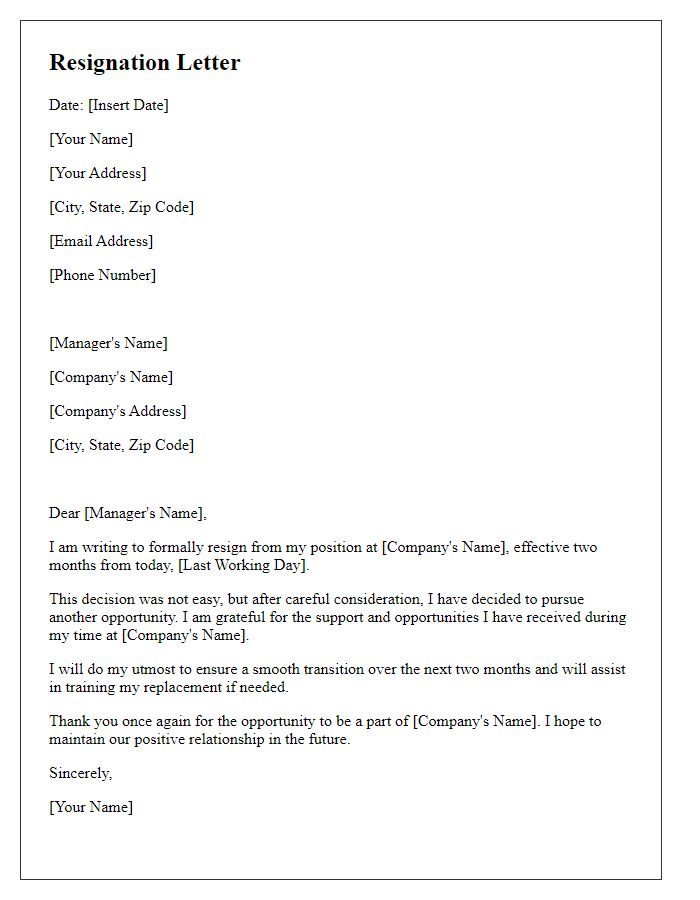
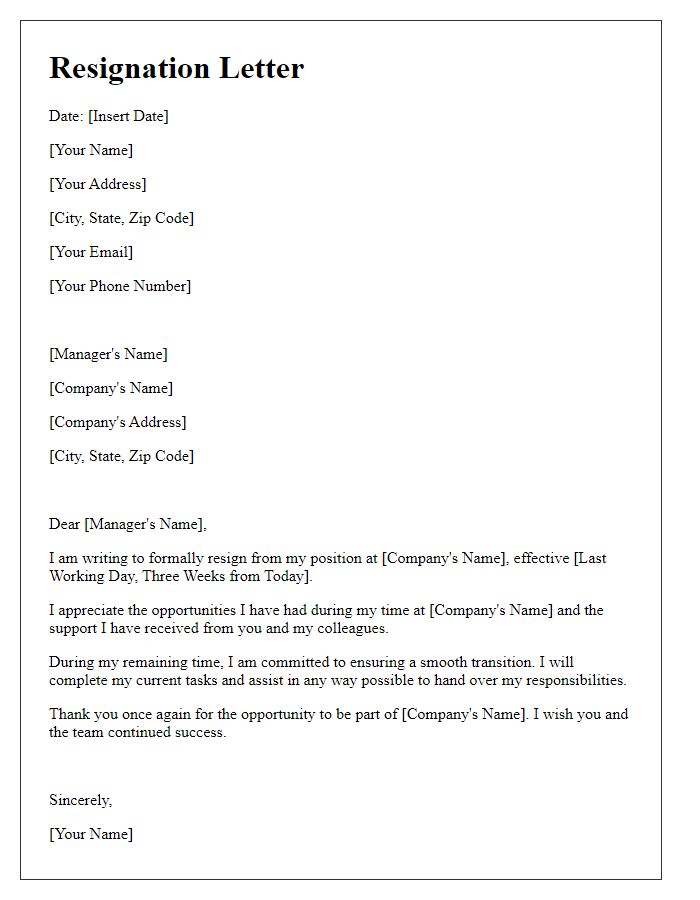
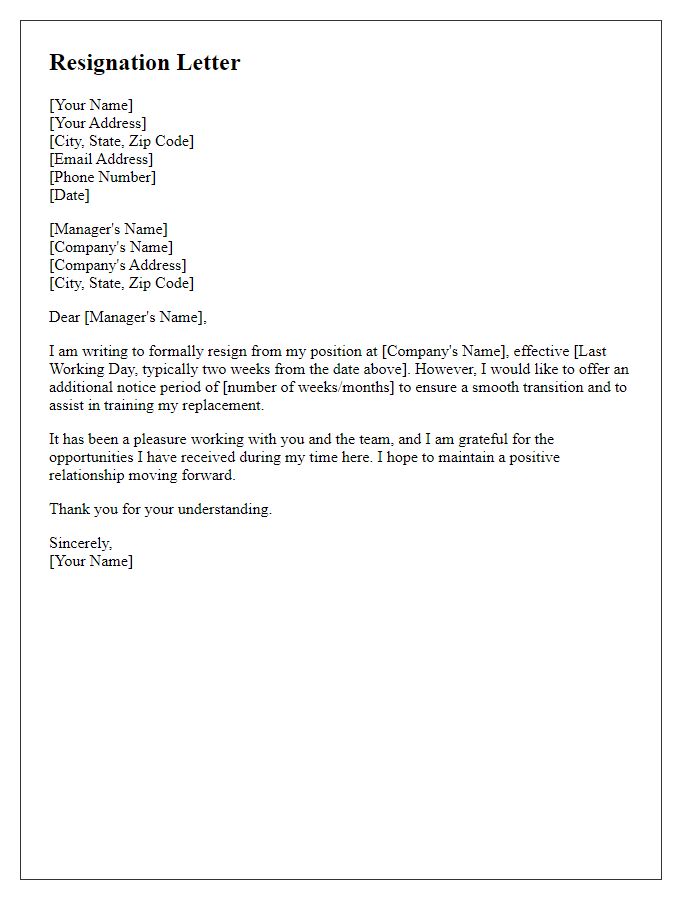
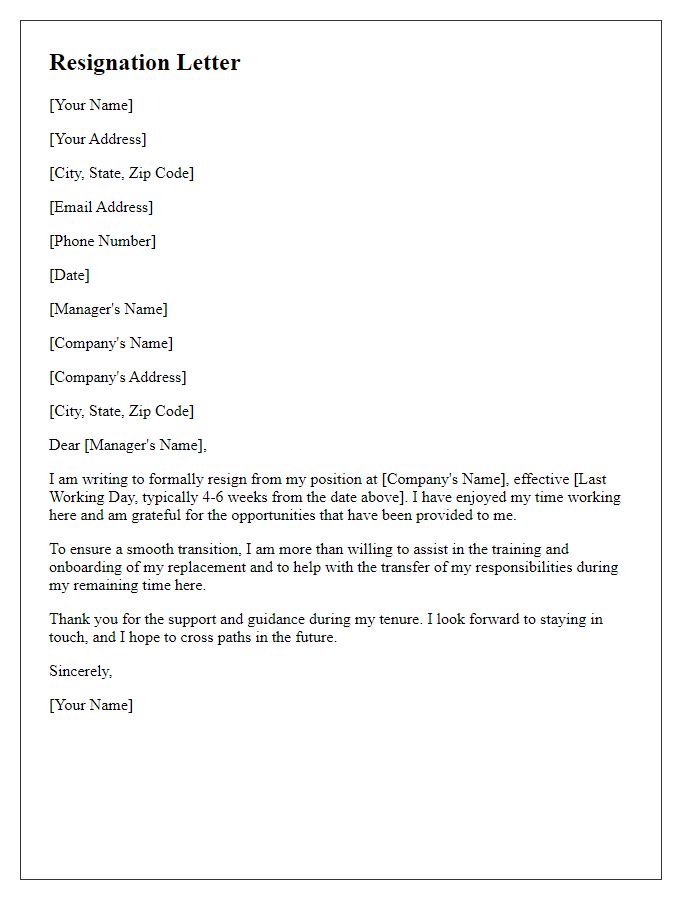
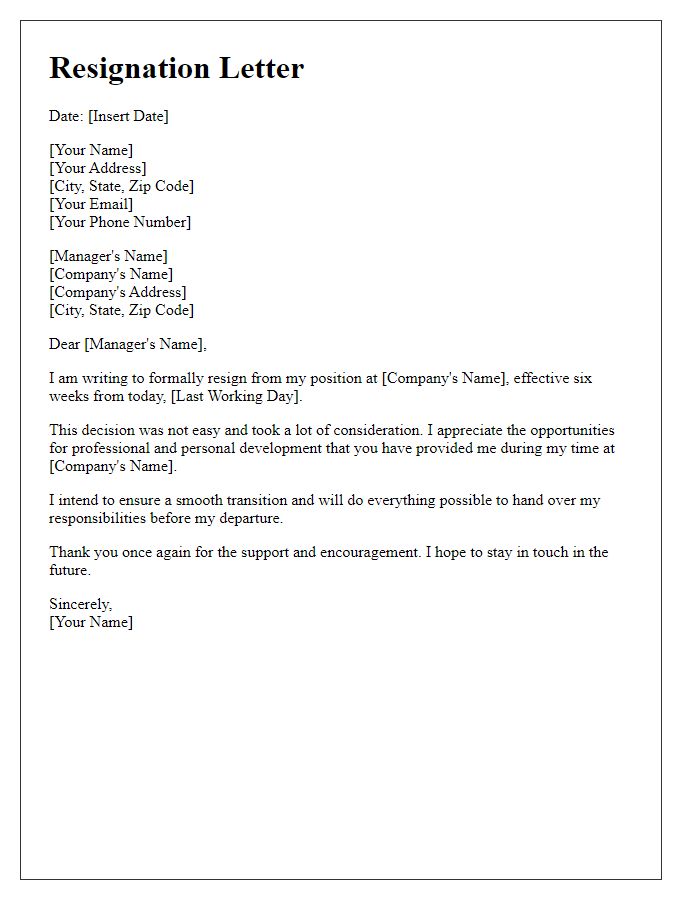
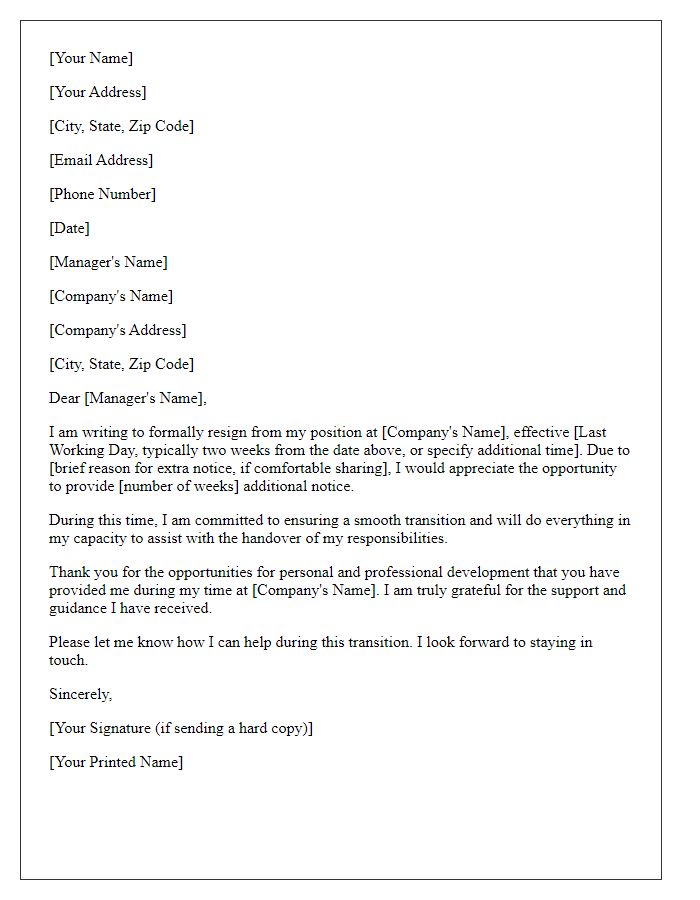
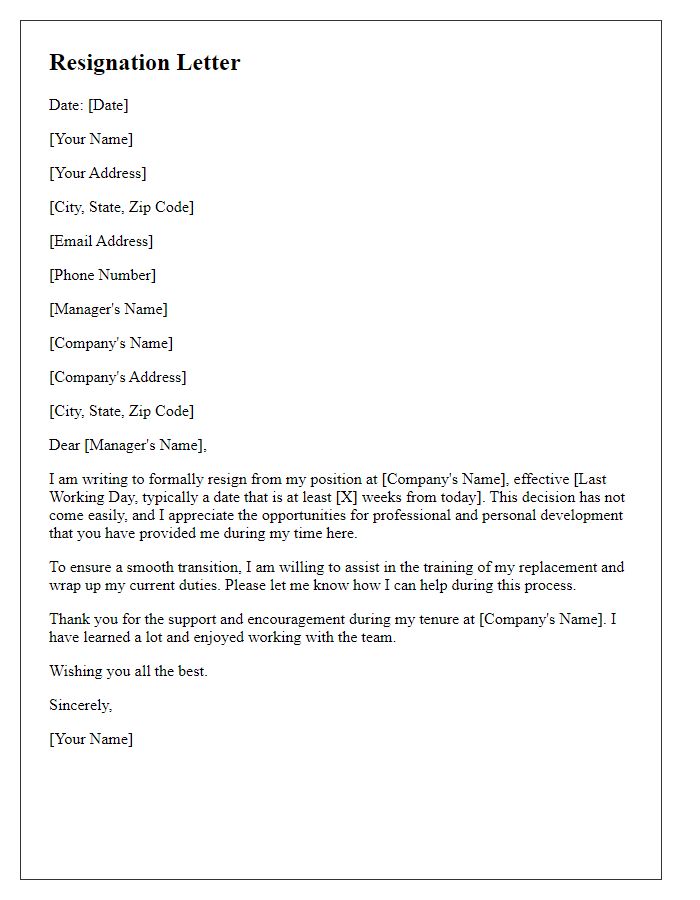
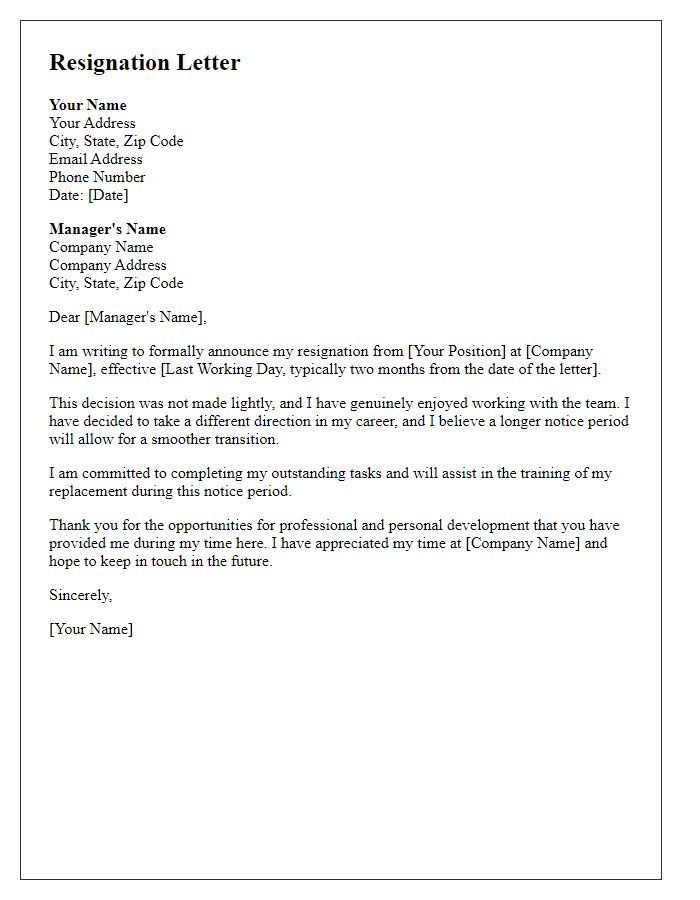
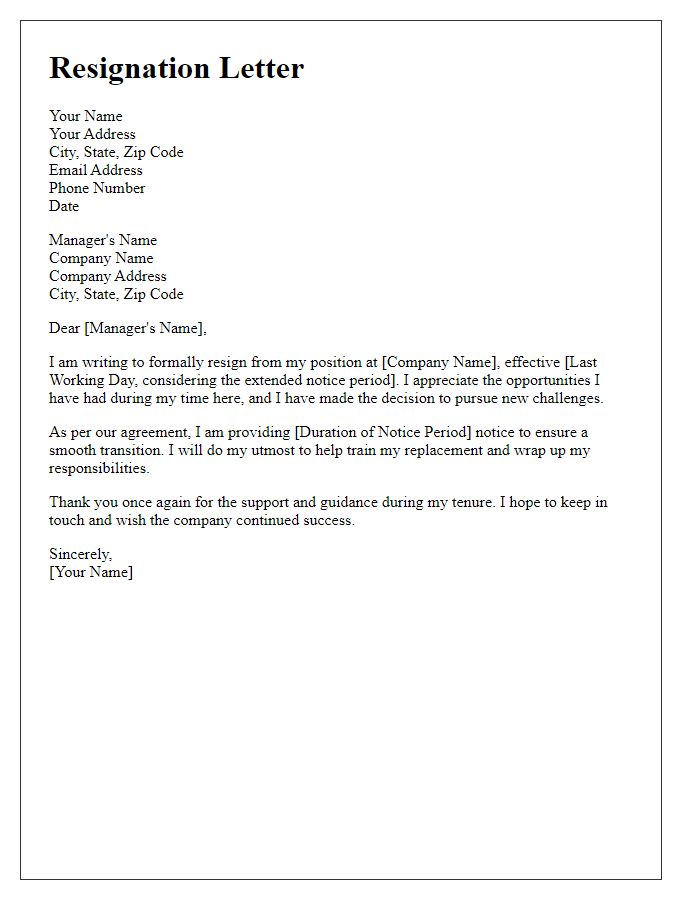
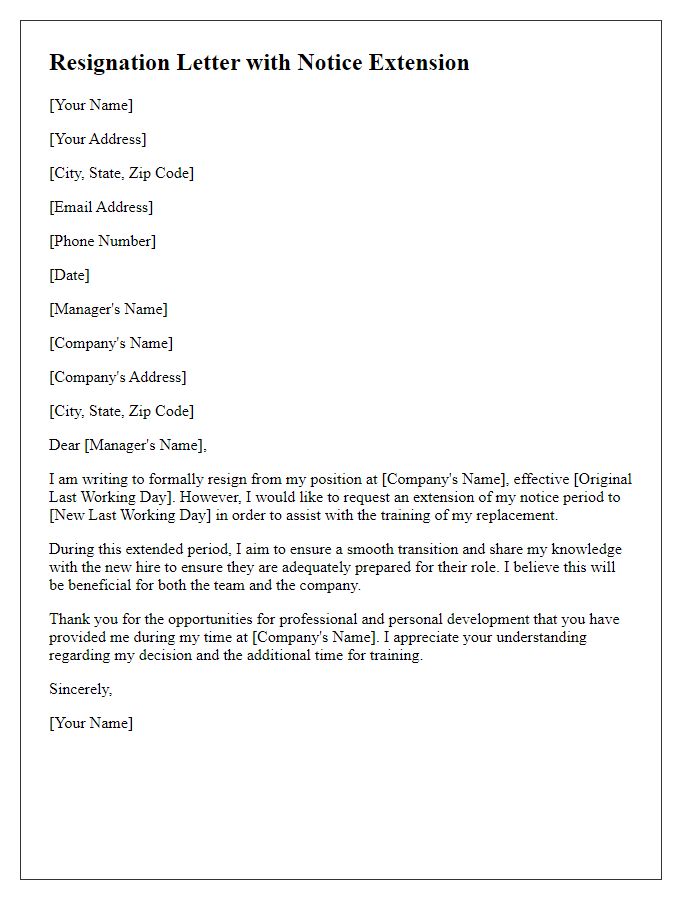

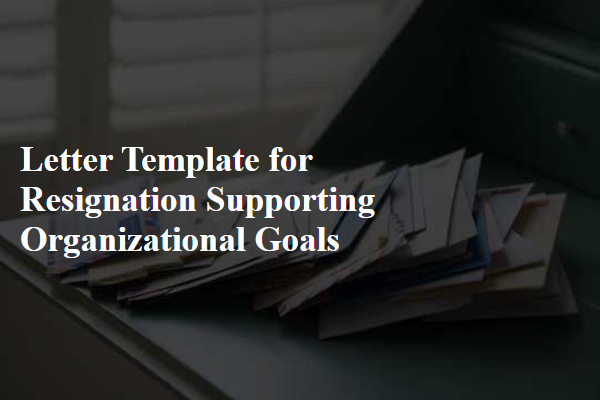
Comments